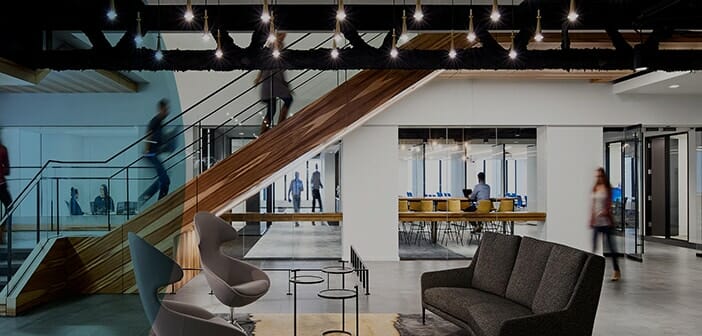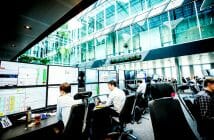This summer, IMC ran its first-ever virtual internship programme. We spoke with two interns, Marcus Beadle, an intern with the Trading team in Amsterdam, and Alex Cummins, who interned with the Technology team, about their experiences. Marcus is a Mathematics Master’s student at Oxford University and Alex is studying for an MEng in Computing at Imperial College London.
Why IMC?
Marcus: I see we’re starting with the million-dollar question! First of all, IMC has a great reputation in the industry and on campus. But for me, it was really about the ‘IMC culture’ and the mindset that was advertised – the idea that ‘good ideas prevail’.
Alex: So, it hasn’t been your lifelong ambition to work in the financial markets?
Marcus: I was interested in finance and trading, but mostly because it seemed like a career for people who enjoy problem-solving. The main message that came through during the interview process was that, ‘if you have that analytical mindset and you like a challenge, then this is the place for you; we’ll teach you everything you need to know about the markets as you go’.
Alex: My motivation was slightly different, I guess. I’d studied economics before university, so finance had always been on my radar, but I’m also really passionate about computing and technology. The chance to use my technical skills in a financial environment really appealed to me. I also wanted to be somewhere fast-paced – in some tech roles, you can wait months to see the programs you are building being put into everyday use, but things are much more instantaneous in the trading world.
How did you feel knowing you’d be taking part in a virtual internship?
Alex: I’d be lying if I said I hadn’t thought about it. I can’t speak for all the interns, but I didn’t feel I was losing out by interning remotely. My day-to-day routine was still very interactive: we had team meetings each morning, and technical sessions on Thursdays where different members of the trading team would take turns presenting. It was fascinating to see how someone might approach a difficult problem, or to learn about a proposal for a new implementation. And then there was the work itself, of course; I sometimes forgot I was working from home, because my project was so interesting.
Marcus: That sounds similar to my experience. Every day, at 9am, a different trader would join us and talk to us about what was happening in the markets that day. It was nice, because they were taking time out of their morning – and that’s the most important time for a trader.
Alex: I think we were the lucky ones; I have quite a few friends whose internships with other firms were quite disappointing.
Marcus: Or even cancelled. I know a lot of companies decided at the last minute not to run a summer programme.
Alex: Of course, it’s hard to form the same connections with other interns when everyone is working from home. You’re not going out for drinks together in Amsterdam on the weekend, for example. But I was surprised by how sociable the internship actually was. There were events organised every Friday: bingo and wine tasting, and even a virtual cooking session.
Marcus: I know what you mean. I expected we would all get our heads down and there wouldn’t be much opportunity to get to know people, but it couldn’t have been more different. And like you say, the fact the internship was virtual didn’t affect the work I was doing.
Alex: Yes, and it underlines the trust IMC placed in us. In an office, there are always people around who can see what you’re doing; we had that extra layer of responsibility working from home. It clearly paid off because everyone’s projects seemed to turn out really well.
Is responsibility the most important thing on an internship?
Marcus: It’s is super important, but I think it also comes down to putting the right people in the right roles.
Alex: How do you mean?
Marcus: Well, my background is in pure mathematics. IMC picked up on this and decided to assign me one of the more theoretical projects where I could really use my skills. There seems to be a culture of finding out what each person is good at and shaping their role around that. Was there much variation on the Technology programme, Alex?
Alex: Definitely! Even within my own project, in fact. At the beginning of project, I spent time learning about the system and how it works. As the internship progressed, I got to know the set-up better, and my work became more implementation-focused. What I found particularly interesting was that my mentor hadn’t actually worked in that particular IT system himself – it felt more like we were on this journey to understand it together.
What advice would you give future interns in your shoes?
Marcus: It’s a bit of a cliché, perhaps, but it’s important to be yourself. Everyone at IMC is super smart so, as ‘the newbie’, there’s a danger you might feel under pressure to impress people. Fortunately, my team did a really good job of convincing me that this is a place where you can make mistakes; the most important thing is you learn, and that you speak up when you don’t know something.
Alex: I’d agree with that. I was always encouraged to ask questions, and my mentor would put me in contact with a member of the trading team if there was specific information I needed. Everyone was always extra happy to help out. So, my cliché would be that ‘there’s no such thing as a stupid question’.
Both Marcus and Alex have since received offers from IMC and will be returning to work full time in the Amsterdam office after completing their studies. If you think you have what it takes to be a summer intern in Trading or Technology and would like to know more about our programmes, please visit our student opportunities page.





